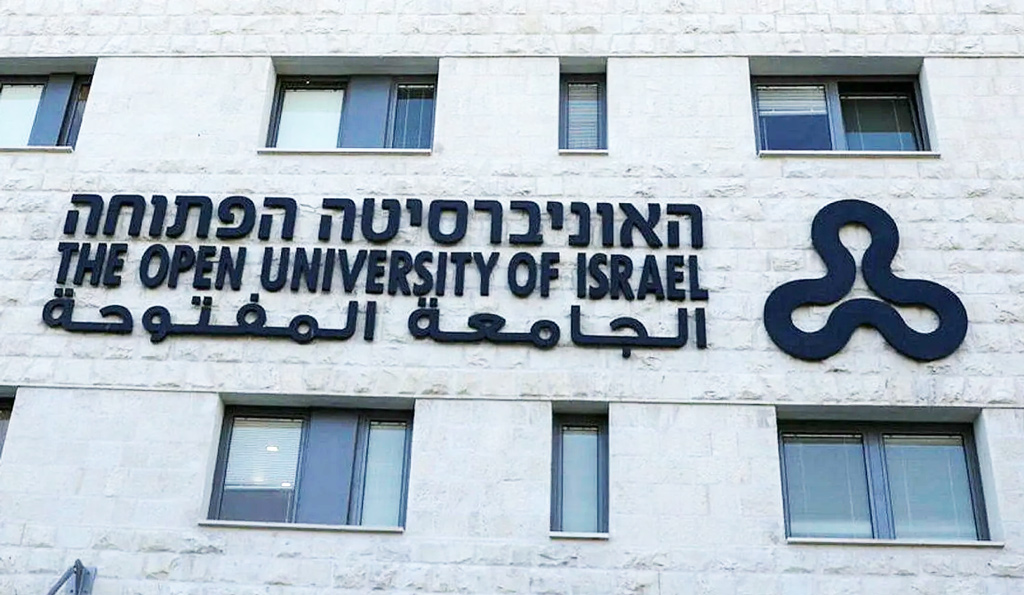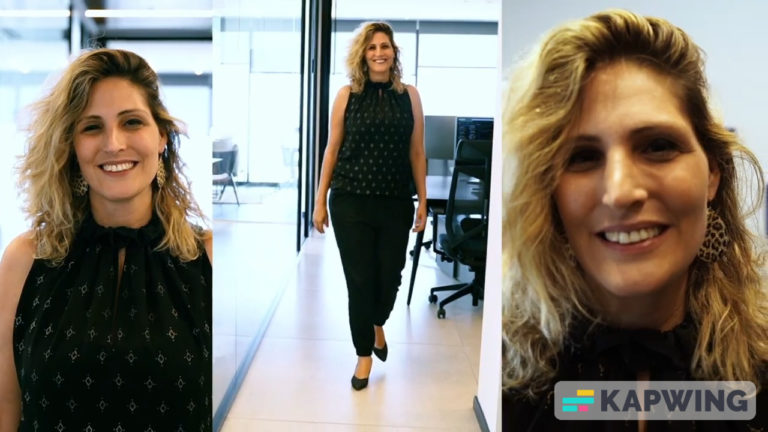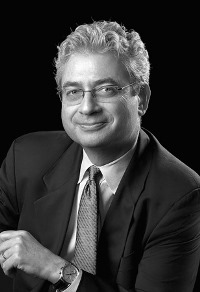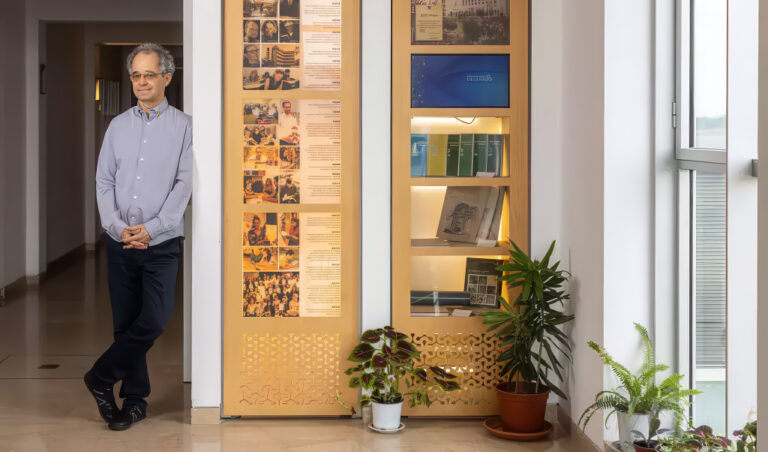How Did the Open University Become the Leading High-Tech Education Institution?

The Open University produces the greatest number of computer science graduates in the country, and their salaries are also the highest. Many would not have achieved high-tech positions any other way, particularly ultra-Orthodox women and those without a matriculation certificate.
Merav Arlozorov • January 20, 2025
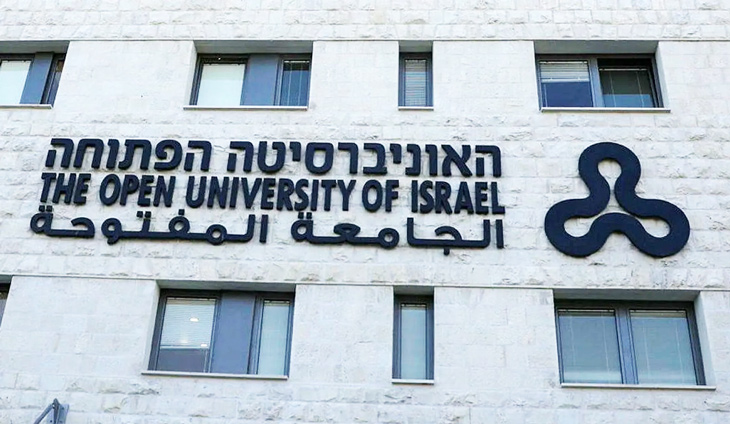
For the first time, the Open University of Israel (OUI) has overtaken the Technion and the Hebrew University as the institution that educates the most employees per year for the most sought-after professions in high-tech. In 2024, the Open University granted bachelor’s degrees in computer science to 349 students — the largest number of computer science graduates in Israel.
This statistic represents a turnaround in the status of the Open University and in the way it is regarded by potential students. For many years, the university was seen primarily as an institution offering an attainable higher education. In 2020, just over half (54%) of the OUI’s undergraduate degree recipients were first-generation university students; slightly less than the colleges of education (55%), but more than the academic colleges (50%), who had long been considered the leaders of academic accessibility. In comparison, at other Israeli universities, only 32% of graduates are first-generation higher education students.
The OUI’s success in making higher education accessible is impressive, given the fact that the university is considered a very high-level academic institution; much more so than colleges, for example. The demanding nature of studies at the OUI, combined with its policy of open admissions, means that any potential student – even those lacking academic skills – can attempt an academic degree, but it also means that dropout rates are high.

If one looks at the percentage of students completing an academic degree, one can see that only 25% of the students who register for courses eventually graduate. If this number is narrowed down to those who complete at least one course, i.e. those who have the ability to succeed in academic studies, the rate increases to 35%. If one adds those students who succeed in passing the English test, which substitutes for the English section of the psychometric exam, the percentage who complete a degree reaches 50%.
In past years, the demand for studies at the Open University came mainly from individuals who were unable to study at “traditional” universities, either because they had full time jobs and were looking for part time studies, or because they did not have the threshold requirements for admission to university studies. Thus, despite the Open University’s rigorous academic requirements, it was positioned as a “fallback” option, less attractive and not as good. Accordingly, most of those who enrolled studied the humanities and social sciences.
A meteoric rise
All this changed in the past decade, with the surge in demand for computer studies at the Open University. Whereas, in 2010, only 21% of its students studied mathematics or computer science, in 2024 the rate increased to 35%. The percentage of bachelor’s degree graduates in computer science rose from 8% to 14%. The main increase has taken place since 2018 with a meteoric rise from 130 to 349 graduates; almost three times the number of graduates in six years.
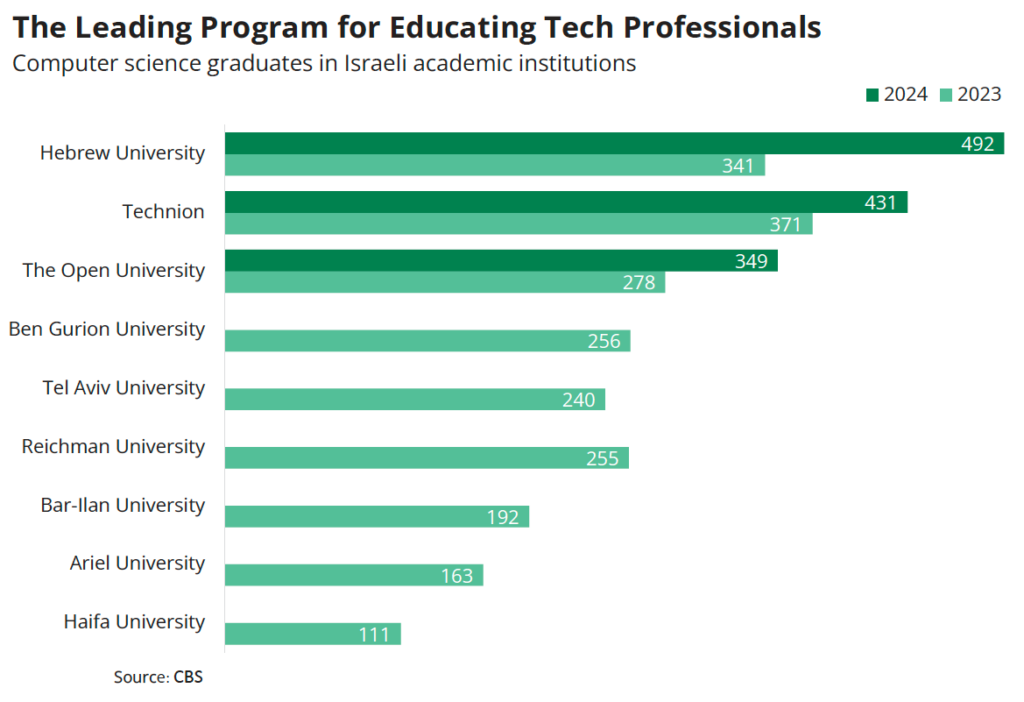
Becoming the largest conduit in Israel for educating high-tech workers has changed the status of the OUI from a societal university providing higher education to disadvantaged populations, to a university standing at the forefront of a prestigious group of academic institutions. The Ministry of Labor regularly publishes on its “Avodata” website salary data for graduates of various majors in different institutions. The current ranking places Open University computer science graduates as the highest paid in Israel, at an average of NIS 47,000 per month five years after completing their studies; about NIS 5,000 more per month than their peers from the Technion or the Hebrew University, and far above the monthly average salary of NIS 36,000 for all computer science graduates of leading Israeli institutions.
This figure may be inaccurate and the sample may be too small to be reliable, but there is logic behind it. First, it is very difficult to complete a computer science degree at the Open University, due to the self-discipline and independent study required. Precisely the same qualities that allow students to successfully complete a degree at the Open University may also enable them to succeed later on in the labor market.
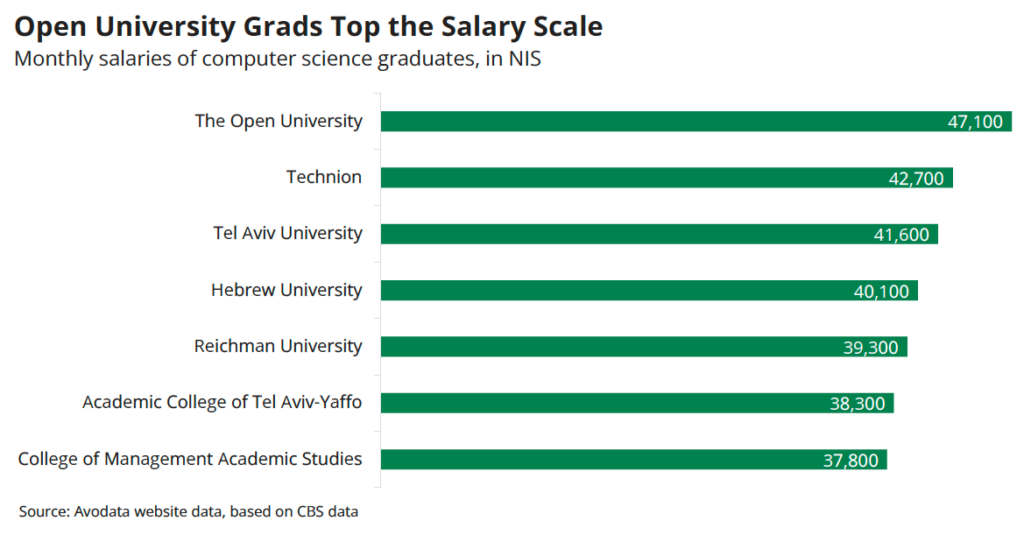
Second, a number of prominent populations have chosen to enroll specifically at the Open University, rather than elsewhere.
The most prominent group are gifted high school students, whose abilities exceed even many of those in high-tech. As the main institution enabling excelling students to study towards an academic degree while still in high school, the OUI attracts 75% of these young scholars.
Since 2018, the number of high school students studying computer science and mathematics at the Open University has doubled, from 1,400 to 2,800, and today they make up 10% of all students in the department. Because these are gifted students, they undoubtedly raise the average salary of university graduates. Two graduates of the OUI’s track for young people even made it to the London Times list of the 100 leading minds in the world in the field of AI.
Another unique population is that of soldiers in compulsory military service, including those serving in technological and intelligence units, who simultaneously study towards a bachelor’s degree while serving.
The third, and most interesting population, are ultra-Orthodox students, particularly women. The Open University’s open admissions policy, and lack of requirement to attend a mixed-gender campus, have made the university one of the most popular institutions for ultra-Orthodox students in recent years. According to the 2024 annual report of the Israeli Democracy Institute on ultra-Orthodox society, 22% of ultra-Orthodox students in academic institutions studied at the Open University — twice the rate of all other universities combined.

Accordingly, the number of ultra-Orthodox students at the OUI has doubled since 2018, and a third — mainly women (two-thirds of ultra-Orthodox students who enroll are female), registered for computer studies. As mentioned, this is a difficult degree which requires knowledge as well as self-discipline, two things in which ultra-Orthodox women excel. As a result, the dropout rate of ultra-Orthodox female students having completed at least one course successfully is better than that of non-Orthodox students, which is the opposite of what might have been expected.
It should be noted that the dropout figures for those who are not ultra-Orthodox probably have an upward bias, since the strongest students use the Open University in order to transfer to other universities.
Students who have completed at least eight courses with a high GPA may transfer to other universities, all of whom recognize Open University credits. This means that the number of computer science graduates who owe their success to the OUI is even higher than the reported 349, because there are probably many professionals who began their studies at the OUI and continued elsewhere.
These graduates, as well as the high school and ultra-Orthodox students have all benefited from the equal opportunities presented by the Open University’s open admission policy. The entire country is benefitting as well.

